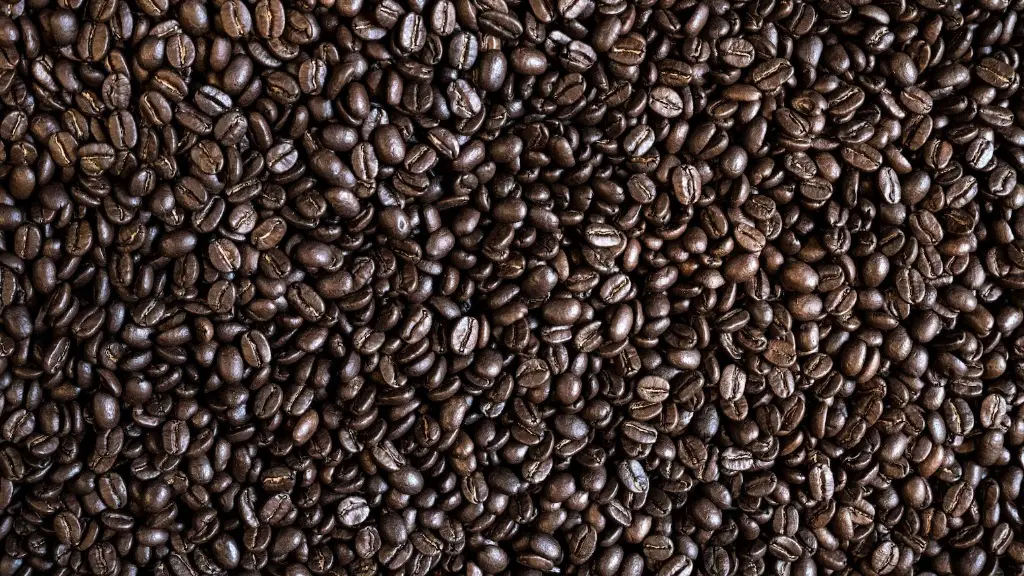Coffee has been one of the most popular drinks around the world for centuries. Loaded with caffeine, it can give you a jolt of energy when you need it the most. But you may be asking yourself, is it bad to drink coffee all day?
In short, drinking coffee all day may not be bad for your health, as long as you know your limits. Caffeine has been found to have some positive benefits, such as aiding in alertness and focus. It can also help people increase their metabolism and help with weight loss.
Coffee can also reduce the risk of certain conditions, such as heart disease, stroke, and Type 2 diabetes. However, too much caffeine can have negative effects. Drinking too much coffee can lead to insomnia, restlessness, and increased heart rate. It can also cause headaches and nausea, and has been linked to an increased risk for depression and anxiety.
Most experts recommend limiting coffee intake to no more than 400 mg of caffeine per day. That equates to about four to five cups of coffee, depending on the strength of the coffee. Exceeding this amount could lead to serious health problems.
When drinking coffee all day, it is important to be mindful of what you put in your coffee. Many store-bought coffee beverages contain high levels of sugar and unhealthy additives. This can not only add calories to your diet, but can also lead to serious medical conditions as well. If you want to maximize the health benefits of your coffee, go for a low-calorie, sugar-free option.
When it comes to drinking coffee all day, it is important to find a balance between the benefits and the risks. Always pay attention to your body and if you are experiencing any negative effects, reduce your consumption or switch to an alternative beverage. As long as you know your limits and understand the risks and benefits, drinking coffee all day may not be bad for your health.
Caffeine vs. Non-Caffeinated drinks
For those that looking for alternatives to coffee, there are a variety of non-caffeinated options. These can include herbal teas, water, and fruit-infused beverages. Herbal teas are a great source of antioxidants, while water and fruit-infused drinks can help boost your hydration levels.
Unlike coffee, these types of drinks do not contain any caffeine and therefore won’t cause any of the negative side effects. Additionally, they don’t carry the same risk of addiction as coffee does and can provide the same amounts of hydration.
If you’re looking for a drink that can provide energy, opt for one that contains natural ingredients, like green tea. Green tea contains the mild stimulant, caffeine, but at a much lower level than coffee. It also has other beneficial compounds, such as antioxidants and polyphenols, which can help protect against cell damage.
Overall, when considering alternatives to coffee, it is important to look for drinks that have natural ingredients and no added sugars. This will help ensure that you get the most nutritional value out of the drinks you choose.
Moderation and Alternatives
When it comes to drinking coffee all day, moderation is key. While drinking coffee can be beneficial, drinking too much can lead to negative side effects. Moderation is key and it is important to determine how much is right for your body.
It is also important to take breaks in between drinking coffee and opt for alternative drinks on occasion. Whether it’s a cup of herbal tea or a fruit-infused beverage, getting in some variety will help ensure you get the full range of benefits from drinks.
Finally, it is important to watch for any signs of addiction or dependence on caffeine. If you find yourself feeling anxious when you don’t have coffee or needing more and more each day to feel energized, it is best to cut back or switch to an alternative drink.
Lifestyle Choices and Caffeine Consumption
Aside from moderation, making healthy lifestyle choices can also help reduce the risk of negative effects from drinking coffee all day. Eating a balanced diet, getting regular exercise, and getting enough sleep are all key factors in maintaining a healthy lifestyle.
Adopting healthy habits such as these can not only help reduce the risk of negative side effects from too much caffeine, but also help improve overall health. Additionally, these healthy habits can aid in establishing a regular sleep schedule, which will help keep your energy levels in check.
Ultimately, when it comes to drinking coffee all day, it’s important to consider your lifestyle and make smart choices. Moderation is key and understanding how much is right for your body is important. Additionally, incorporating healthy lifestyle habits such as a balanced diet, regular exercise, and good sleep can help to reduce the risk of any negative side effects.
Weight Loss and Caffeine
It is important to know that while coffee can help with weight loss, it is not a long-term solution. Adding coffee to your diet in moderation may be beneficial, however, it is important to understand that consuming caffeine will not replace healthy eating and regular exercise.
When it comes to weight loss, healthy eating and regular exercise should be the foundation. Coffee consumption in small doses can give you a boost, but the calories and sugars in many store-bought coffee drinks can add up quickly. To maximize the potential benefits of drinking coffee, opt for a low-calorie, sugar-free option when possible.
When it comes to weight loss, understanding your body’s needs and listening to your limits are key. Make sure you are mindful of your intake and don’t depend solely on coffee for your energy.
The Benefits of Coffee Consumption
Overall, drinking coffee all day may not be bad for your health, as long as you understand your limits and know how to look for healthier beverages. Knowing how much is right for you and taking breaks from coffee can help reduce any potential negative side effects.
Additionally, coffee has been found to have some positive benefits, such as aiding in alertness and focus. It can also help reduce the risk of certain conditions, such as heart disease, stroke, and Type 2 diabetes. Therefore, it is important to be mindful of your intake and make smart decisions when it comes to drinking coffee.
In the end, moderation and mindful drinking are essential when it comes to coffee consumption. Understanding how much is right for you and opting for healthier alternatives when possible is important. Incorporating other healthy lifestyle habits like balanced eating and regular exercise will also help reduce the risk of any negative side effects.





